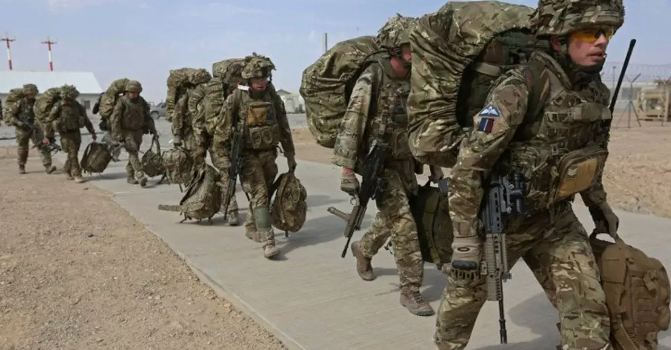
Armed services asked to find up to £1 billion in “efficiency savings” this year
Although both major parties have pledged increased defence spending in the final days of the election campaign, the armed services are facing a different reality. The Ministry of Defence (MoD) has instructed the armed forces to find up to £1 billion in “efficiency savings” in the current year, effectively requiring cuts.
Independent defence analyst and publisher Francis Tusa describes the tight deadline for implementing such savings as unrealistic, stating, “It takes up to two years at least to bring in such measures… if you bring in such a tight deadline, it’s just a bank robbery.”
Rob Johnson, an Oxford academic and former soldier, has been vocal in warning that the armed forces are unprepared for “a conflict of any scale.” He claims that ammunition stocks and key weapons systems have been depleted, leaving the forces ill-equipped to defend the UK properly.
The largest cuts are expected to come from the Army, which, according to Tusa, has “the largest number of unsecured programmes.” These unfinalised contracts are now being targeted for savings, in an attempt to free up money for long-term shipbuilding and aircraft programmes for the Navy and RAF.
The Conservative Party’s manifesto promises to increase defence spending to 2.5% of GDP during the next parliament, while Labour also supports increases, although contingent on financial circumstances. Both parties have committed to £3 billion a year in aid to Ukraine, largely funded by the UK’s defence budget.
Labour’s shadow defence secretary, John Healey, has pledged a strategic defence review within a year if his party wins the election. Should he become the defence secretary, he will be tasked with addressing the numerous challenges facing the UK’s defence forces, including the overstaffed and underperforming Ministry of Defence and delayed programmes like the Ajax medium tank, which has cost over £3 billion and remains non-operational after 15 years.
The new government will also face immediate challenges on the international stage. Just days after the election, the new prime minister and defence secretary will attend a major NATO summit in Washington. With NATO facing leadership turmoil in the US and France, and increasing global security threats—from Russia’s aggression in Eastern Europe and the Mediterranean to escalating conflicts in Gaza and Lebanon—the UK will likely be under pressure to do more, despite its planned cuts.










